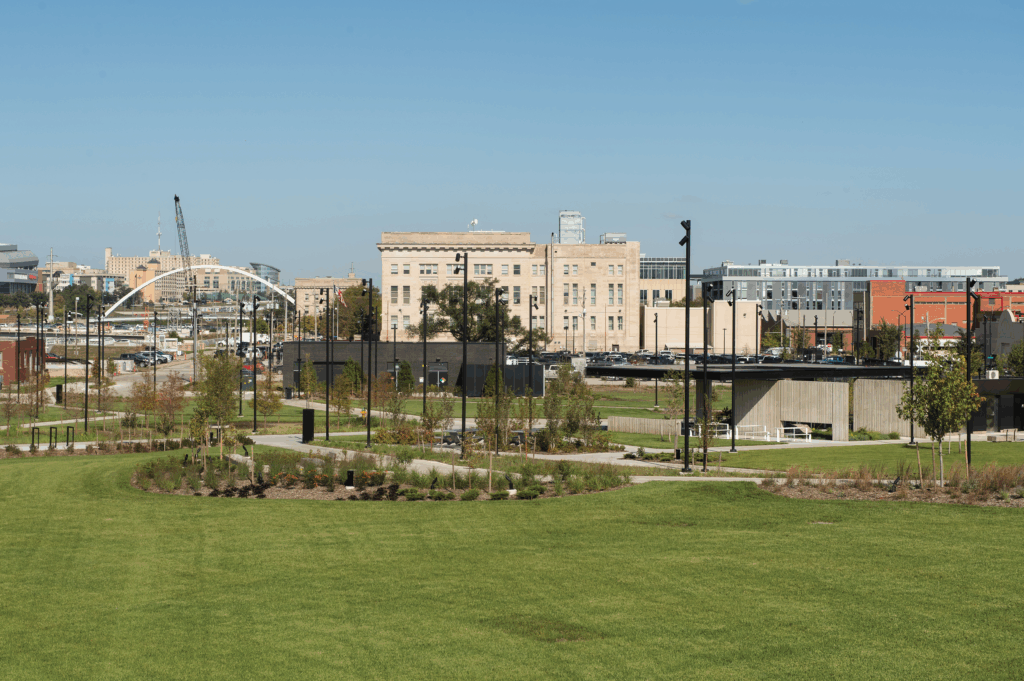Third draft of regional water agreement due this summer with 2025 goal for operation

A third draft of an agreement to create a regional water utility is expected to be available for review this summer with agreements to join the utility being signed by the end of this year.
The Business Record met with Ted Corrigan, CEO of Des Moines Water Works, recently to learn more about the progress made in work to develop a regional water utility, which will be known as Central Iowa Water Works.

The primary utilities behind the effort — Des Moines, West Des Moines and Urbandale — approved resolutions in late 2021 and early 2022 to begin negotiations that could lead to the creation of a regional water utility.
An initial draft of a 28E agreement was issued in February 2022. That was followed by six months of efforts to educate potential member communities about the plan. Feedback including questions and comments was then assembled and a second draft that addressed those questions and concerns was issued in March. Now, based on feedback gathered from that draft, a third version is being drafted and will hopefully be ready to be reviewed this summer by the 13 communities that are involved in the conversation.
It’s the latest in the process to create a regional drinking water system.
Initial discussions about the possible regionalization of the water system began around 2016 but fell apart. More focused talks resumed in 2019 but were put on hold with the onset of the coronavirus pandemic in early 2020. Discussions later resumed to determine if there was a path forward and a report was released in November 2021 indicating a consensus had been reached around regionalization and what a regional utility would look like.
Leaders behind the effort have said that regionalizing the water system would help Central Iowa meet its water needs as it continues to grow and is vital to continued economic development and job growth.
In his conversation with the Business Record, Corrigan spoke about the process, what’s next, and the challenges of developing and executing a plan among 13 communities. Here is some of what he had to say.
What is the nature of the changes that have been made based on the feedback that has been received?
I would say specificity is probably the primary thing. For example, Central Iowa Water Works is going to have to go through a budgeting process. And that is going to involve getting input from communities that are producing water and what their costs are looking like, determining what those rates are going to be, and then communicating to all the member agencies what the rate will be in time so those communities can do their budgeting and set their rates. So there were questions about just exactly when are we going to know what the rate is going to be. We try to get more specific on those kinds of questions so everyone can plan. It isn’t a case of that’s an unacceptable schedule for the budget; it’s more of a case of we really need to know how this is going to work. It needs to be defined in the agreement. There was also real interest in how communities that don’t join, what the relationship that they will have with Central Iowa Water Works. We had to get very specific with that. There are communities who don’t buy water from Des Moines today. There are communities who buy very little water from Des Moines … and then there are communities that buy 100% from Des Moines. So we had to be more specific about how each of those situations would be handled.
What are the next steps in the process?
We hope to have the draft agreement done here this summer and then get it out to people and get feedback from them on whether they are interested or not, update the financial model and give them that information and get a decision so by the end of the year people are signing the agreement and joining Central Iowa Water Works. Critically important, though, is that signing the agreement is the beginning of the process, not the end. Once the agreement is signed, we will have to seat a board. The board will then have to hire an executive director. They will have to identify who their engineer will be, who their legal counsel is going to be and who their financial adviser is going to be. They’re going to have to make a series of decisions. Throughout that year, we will be preparing Central Iowa Water Works to begin operation.
When do you expect Central Iowa Water Works to begin operation?
The operational commencement date is when Central Iowa Water Works actually starts functioning as the regional provider. That is when they will start sending bills to the communities instead of Des Moines Water Works sending the bills, and when they will start making the financial decisions and the planning decisions. Operational commencement is when the ownership of the assets will become joined, and that’s going to be sometime in the first half of 2025, we hope. So we’re hoping to sign this agreement that starts the process, but it’s going to take at least a year, probably longer than that, to get through all the steps. We’ve literally got hundreds of properties to be considered and easements and facilities, and we want to get it right. There’s a process you go through to create joint ownership of something. We’re expecting that to be a 12- to 18-month process. Signing the agreement begins the process.
What are those assets that will be joined?
It’s source, treatment and transmission. So source would include river intakes, and we have a series of shallow wells. We have treatment plants. We have … pipelines that connect all that together. There are booster stations and some control valves and things that make it all work together to get water to all the corners of the system. There’s going to be joint ownership of all those things.
Where will the office of Central Iowa Water Works be located?
It hasn’t been determined yet. My guess is that’s going to be a decision that the board will need to make. Will they want it in Des Moines? My guess is that they’re probably not going to want to do that. They’re going to want to make it clear that this isn’t Des Moines Water Works. This is Central Iowa Water Works. But what exactly does that mean, I don’t know. There is sensitivity to creating another layer of administration and another layer of cost. But there’s also real sensitivity to ensuring that Central Iowa Water Works is its own entity and functions as an independent entity from any other of the public water supplies that exists today.
What has been the biggest surprise for you in this process?
It has taken longer. We’re trying to get it right. Trying to meet the needs of 13 different communities that have different needs and different perspectives. Every board has had to move because they all have a vision and they all have needs and they all have goals. So the learning experience for me is it takes a lot of time to build a coalition this big. I think it was worth every second of the time that we spent. It’s been a great relationship builder for those involved. I think part of the key to future success is that we have a relationship now that is built on trust and mutual goals. That’s the big takeaway for me is it takes time.
Here are links to previous stories to help you catch up on efforts to regionalize Central Iowa’s water system.

Michael Crumb
Michael Crumb is a senior staff writer at Business Record. He covers real estate and development and transportation.










